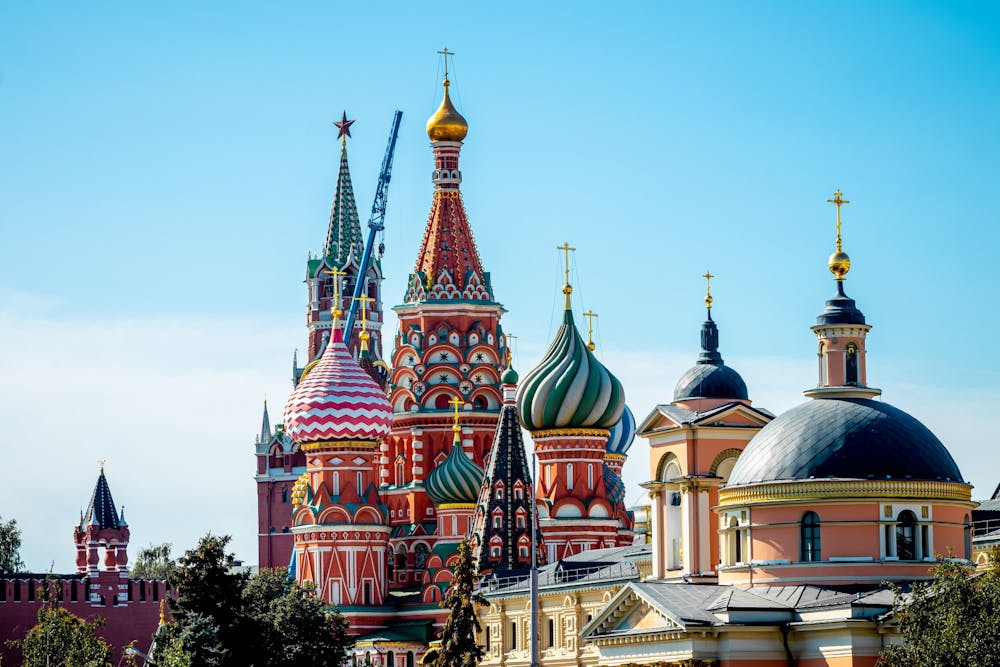I recently watched the newest installment in the James Bond Franchise, No Time to Die. Predictably, the villain’s henchmen all spoke Russian. This reflects a deeply-rooted truth: In the United States, Russian is still perceived as the language of the villain.
Americans’ Russian language acquisition has been intimately tied to politics since the Cold War. Following the Soviet Union’s 1957 launch of Sputnik, the United States passed the National Defense Education Act, which incentivized U.S. universities to expand their Russian language offerings. As a result of this legislation, over 30,000 American students learned Russian.
Since the collapse of the Soviet Union and the subsequent perceived decline in Russia’s geopolitical importance, the number of American students studying Russian has substantially declined. In 2020, less than 5,000 first- and second-year undergraduates enrolled in Russian language courses across 109 Russian programs. Meanwhile, in Princeton, this semester only 19 students are enrolled in Beginner’s Russian I, and only 6 are enrolled in second-year Russian, Intermediate Russian I.
The U.S. government has taken note of this dramatic decline in the number of Russian language learners. They identify Russian as one of the languages “critical to our national security and prosperity.” Thus, bolstering U.S. security interests has re-emerged as a reason to learn Russian. Indeed, many “Why Learn Russian” lists state that the U.S. government needs more Russian language specialists as a primary reason to learn the language.
It is undeniable that the U.S. government needs more Russian language speakers and that Russian is an increasingly important language to learn. However, as a Russian heritage speaker, I firmly believe that the Russian language has value outside of its strategic positioning as the language of the enemy. Russian — just like every other language — is a language of love and dreams, thought and discovery, culture and art, family and friends. It is a language of living, not of fighting.
So why learn Russian? Besides the more professionally pragmatic reasons for doing so, I urge you to learn the language because it is magnificent.
Americans’ association of Russian with the adversary masks the language’s beauty, which I believe is both described and reflected in Russian poetry. For example, Turgenev’s “The Russian Language” reads:
“In days of doubt, in days of sad brooding on my country’s fate, thou alone art my rod and my staff — oh great, mighty, true and free Russian tongue! But for thee, how not to fall into despair, seeing all that happens at home? Yet who can think that such a language is not given to a great people?” (June 1882).

Unfortunately, the poem’s rhythm and flow are lost in translation. Due to its grammatical structure, Russian is an incredibly poetic language. Poets from Pushkin to Ahmataova are celebrated globally, and their work is even more powerful in Russian. Speaking of Russian poetry, learning Russian opens a window into engaging more deeply with Russian literature — including such great literary works as The Brothers Karamazov and War and Peace.
I spoke with Princeton’s Slavic Language and Literature’s Department Chair Ilya Vinitsky about his perspective on what makes Russian literature worth reading. According to Vinitsky, “Russian literature has a great potential for intellectual and aesthetic provocation.” Vinitsky further argued that although the Russian literary tradition seems “more provocative than other traditions due to a number of historical factors, it is a helpful provocation which tries to reach the truth at whatever cost. Russian literature has the power to show us the issues we do not want to think about. [Reading Russian literature] is good for your personal development, even if it is not in your comfort zone.”
Through speaking with Professor Vinitsky, I realized that Americans’ misunderstanding of the Russian language is reflected in their misunderstanding of some of the language’s most famous speakers, like author Fyodor Dostoevsky. According to Vinitsky, “there is another Dostoevsky ... that exists in Western culture, rather than in the Russian context.” He offered an example of this “other Dostoevsky” phenomenon: Americans widely attribute the quote “the degree of civilization in a society can be judged by entering its prisons” to Dostoevsky. Dostoevsky, however, never wrote or said these words. Despite this fact, Professor Vinitsky had to negotiate with the New York Times for it to remove from one of its articles a false attribution of this quote to Dostoevsky. Americans, it seems, deign to engage with the Russian language and its literature on their own terms.
As a proud Russian American, I urge you to engage with Russian on my terms. The Russian language is close to my heart, and Russian literature has shaped the way I see the world. Readers, I invite you to study Russian. Not because it is important for U.S. security, but because studying Russian nourishes the soul. Current Princeton undergraduates especially, take advantage of Princeton’s robust Slavic Languages and Literatures Department. The experience will be transformative, I assure you.

Genrietta Churbanova is a Sophomore and prospective Anthropology major from Little Rock, Arkansas. Genrietta's columns often focus on language, intercultural connectivity, and Princeton's reach beyond Mercer County. In her free time, Genrietta enjoys running, drinking tea, and pouring over Russian literature. If you have any questions or concerns about her columns, desire to discuss a topic you would like to see covered more thoroughly in the Opinion Section, or just want to chat, feel free to email her at geaac@princeton.edu.








